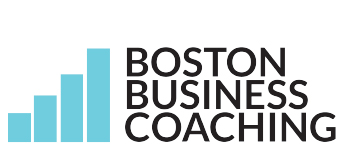
25 May Having Dreams About Being Lost? Get A Career Coach
A Career Coach -How Do You know You Need One?
Most people have dreams of feeling like they are lost or being somewhere but not knowing where they are going. If you have been having this type of dream you may be trying to tell yourself you need help getting a clearer career direction. No one likes to feel like they don’t have control and career coaching is a great way to begin to explore what you might want to do with your career.
You can teach yourself what you like or what you think you should be doing. And although parents can be helpful- they might be inadvertently be steering you in a direction that does not fit with your personality and interests.
Factors You Should Consider When Making Career Decisions
As a career coach, I can tell you many people trying to be helpful-unknowingly give bad advice about choosing a career. Some people will say “find something you like to do and pursue that for your major.” Or they will say, “You can make a lot of money being a doctor so why not pursue that-you certainly have the grades.” Or they will say “there are plenty of jobs in biotech so why not pursue that field.” While these might be good suggestions, one needs to take a more comprehensive approach to choosing a profession.
It is only by exploring the combination of the individuals’ personality, desired lifestyle, interests, as well as current and future job opportunities in the desired geographic area that one can truly make an informed career decision. Choosing a career without doing these things with a mentor, job, or career coach is akin to going on a safari and not knowing where you are going, or what you will see.
Personality
Each individual has a unique personality with their own likes and dislikes, and way of looking at the world, processing information, and relating to others.
One of the most widely utilized means of assessing personality is the Myers-Briggs Type Indicator® instrument. Myers-Briggs theory was developed by the mother-daughter partnership of Katharine Briggs and Isabel Briggs Myers. Myers-Briggs theory is based on the adaptation of Carl Gustav Jung’s theory of psychological types. The aim of Isabel Briggs Myers, and her mother, Katharine Briggs, was to make the insights of type theory accessible to individuals and groups. Myers-Briggs Type Indicator® instrument has been refined and tested many times over the past 40 years, and there have been hundreds of studies that have proven the instruments’ validity and reliability, The theory is based on 16 different personality types, that act as useful reference points in understanding each person’s unique personality. Myers Briggs theory purports that there are four preferences:
- Where you focus your attention –People and things (Extraversion or E), or ideas and information (Introversion or I).
- The way you take in information –Facts and reality (Sensing or S), or possibilities and potential (Intuition or N).
- How you make decisions –Logic and truth (Thinking or T), or values and relationships (Feeling or F).
- How you deal with the world – A lifestyle that is well-structured (Judgment or J), or one that goes with the flow (Perception or P).
In Myers Briggs theory, for each pair, you prefer one style more than the other. To get your Myers-Briggs personality type-you combine the letters associated with your personal preferences. For example, having preferences for I, N, F and J give you a personality type of INFJ. Even though you might have preferences, according to Myers-Briggs theory-you still use all eight styles – in the same manner, that most people who are right-handed at times use both hands.
Knowing your personality type is essential if you want to assess your compatibility in certain careers and jobs. In career coaching sessions, I explore people’s personality preferences first and then use that information to inform career interests. There are a number of career interest inventories out there but none does a better job of integrating personality than the Strong Interest Inventory®.
Desired Lifestyle
One of the most overlooked areas of choosing a career is a lifestyle. People often choose a career based on their interests or what they like to do and do not explore what income a job in this profession would produce for them and what life will be like making the salary for their desired job. This exercise is often difficult for someone who has never lived on their own, and/or doesn’t know basic living costs, or real-life incomes of various jobs. People should explore this in the context of what reality would look like when they graduate or start working in the desired profession. There are many tools online which can give people a window into these details.
Career Interests
One of the biggest mistakes people make is going after a career that involves their hobby or a relaxing pastime. Some of my clients have come to me after following that path where they discovered that turning a hobby into a career makes the pastime less enjoyable because they are now having to do it all day rather than when they feel like doing it. For example, one person with whom I worked enjoyed composing music but when he went to college and majored in music he discovered he did not want to pursue what he found enjoyable for his career. The school program also had a requirement that all composers do performance work which he found very stressful. He also discovered, after talking with professors and graduates of the program that opportunities for what he wanted to do were very limited, and those who were able to finish the program were struggling financially and living at home due to the limited opportunities for work in their chosen job. There is a range of opportunities available within any field but you need to know where to find the detailed information in order to research it thoroughly and make an informed decision about your career.
Current And Future Job Opportunities
Before deciding on a career or job path-each person needs to assess the job market to see if there are enough jobs in their local market to justify the time, money and effort needed to acquire the academic and experiential skills needed to land the desired job.
There are many sites online that can detail the projected growth of a job category which can help you decide if say, 4-10 years from now there will be jobs in your desired profession. For example, looking at the job search site www.onetonline.org/ shows that in Massachusetts, the job title “Musicians and Singers” will grow 6% Nationwide to 17,800 jobs from 2016-2026. But in Massachusetts, it is projected to grow 4% yielding only 30 annual job openings, on average, due to growth and net replacement. If you are willing to travel in your desired profession you do open up the possibilities for getting a job, but if you don’t, then you really need to make sure you can find work, especially due to the fact that the average outstanding student loan debt for the class of 2017 graduates was $39,400 (New York Fed). This loan debt number is expected to grow due to increasing college tuition costs, as well as an increase in projected costs of living.
The Strong Interest Inventory®
The Strong Interest Inventory® (Strong) assessment measures career and leisure interests. It is based on the work of psychologist Edward Kellog Strong, Jr., who in 1927, originally published his inventory on the measurement of interests. The assessment is often used to help people in making career and educational choices. The Strong Interest Inventory assessment helps people explore their interests in six broad areas: realistic, artistic, investigative, social, enterprising, and conventional (often referred to by the acronym RIASEC). It then breaks the RIASEC into 30 specific areas of interest that can be directly related to careers, fields of study, and leisure activities. Also, it describes an individual’s personal style preferences in five areas: work style, learning environment, team orientation, leadership style, and risk-taking. There are a number of different reports available depending on what you are using the assessment for, but depending on the report you choose, it ranks the individual’s top 5 or 10 most compatible occupations from a list of 260 specific jobs. The report will also tell you how your personal interests compare with the interests of people already working in a specific career field. This helps you to narrow down your choices so you can finally feel like you are finding a career or work that is compatible with your personality and work style.
Why Using A Career Professional Is So Important
Although one can find many look-alike personality assessment sites online-only a trained and certified MBTI practitioner can administer both the Myers-Briggs Type Indicator® instrument and the Strong Interest Inventory®. The process of reviewing the detailed assessment reports should only be done by these trained professionals, especially given the importance of one’s career decisions on their future. Certified MBTI practitioners are career professionals whose main goal is to help people to better know their interests and preferences, as well as to explore their options and chart a career path that takes all these things into consideration.
Book a Career Coaching Session or Learn More
References
Jung, C.G. (1921), Psychological Types, (London: Routledge, 1971)
Jung, C.G. (1957), ‘The Houston Films’ in C.G. Jung Speaking, (Princeton: Bollingen Paperbacks, 1977)




